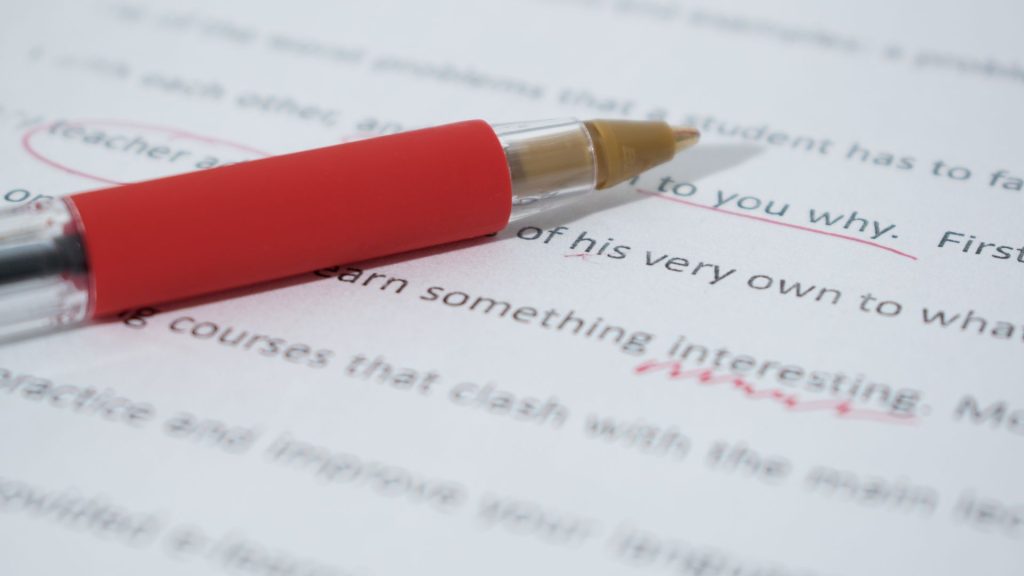Studying abroad presents an incredible opportunity for students to immerse themselves in new cultures, expand their academic horizons, and embark on a transformative journey of personal growth.
Embarking on a journey to study abroad is an exciting opportunity for many students seeking to expand their horizons and pursue academic excellence in foreign lands. However, gaining admission to prestigious international universities requires more than just good grades and extracurricular activities.

One crucial component of the application process is the personal statement, an essay which serves as a window into your personality, goals, and motivations.
In this comprehensive guide, we’ll explore the essential elements of writing an effective personal statement, offering valuable tips and strategies to help you stand out from the crowd and unlock the opportunities that await you.
Understanding the Purpose of the Personal Statement Essay
Before diving into the writing process, it’s essential to understand the purpose of the personal statement and its significance in the admissions process.
Admissions committees use your essay to gain insight into who you are beyond your academic achievements and test scores. They want to understand your motivations for studying in the UK, your academic and career goals, and how you will contribute to the university community.
By grasping the purpose of the personal statement, you can tailor your writing to effectively communicate your strengths and academic aspirations to the admissions committee.

Preparing for Writing: Research and Reflection
Before you start writing your personal statement, it’s crucial to invest time in thorough preparation. Begin by conducting a self-assessment to identify your strengths, weaknesses, and personal qualities that make you unique. Reflect on your academic achievements, extracurricular activities, volunteer experiences, and life events that have shaped your goals and aspirations.
A great way to put it is “Explore how your passions translate to your future”, don’t you agree?
Additionally, research the target universities and programs you’re interested in to understand their mission, values, and academic offerings. Take note of any specific essay prompts and requirements provided by the universities to be able to talk about how interested you are in their program.

Looking at personal statements examples to get inspired
If you need some inspiration to write your personal statement, Studential has a wide range of samples organised by topics.
This website can be a good starting point for anyone looking to get insights or inspiration for their own personal statement essays.
Expat Student is here to assist you in writing your personal statement, step by step! Get in touch for personalized advice and guidance throughout your study abroad application journey.
Crafting a Compelling Narrative: Structure and Content
The key to writing an effective personal statement lies in crafting a compelling narrative that captivates the reader from the outset.
Explain why you are passionate about the subject that you want to study
From there, develop a coherent and engaging essay that showcases your unique qualities, experiences, and achievements.
- Use vivid examples of how you engaged with your studies.
- Highlight how your experiences have prepared you for the challenges and opportunities of studying abroad.
- Convey your enthusiasm for immersing yourself in a new academic and cultural environment.

Writing Strategies and Techniques: Dos and Don’ts
To ensure your personal statement stands out for all the right reasons, it’s essential to follow certain dos and don’ts when crafting your essay.
Do showcase authenticity and sincerity by sharing genuine insights into your personality, motivations, and aspirations. Avoid overloading your essay with clichés and generalizations, as these can come across as insincere and detract from your overall message.
Finally, don’t neglect to proofread and edit thoroughly to ensure your essay is free from errors and effectively communicates your ideas.
| Writing Strategies and Techniques | Dos | Don’ts |
| Research and Preparation | Conduct thorough research on the course that you want to study. | Don’t rely solely on generic information; tailor your research to specific programs. |
| Personalization | Personalize your essay to reflect your unique experiences, aspirations, and motivations. | Avoid clichés or generic statements that could apply to any applicant. |
| Clarity and Conciseness | Clearly articulate your goals, interests, and reasons for choosing the program. | Don’t use overly complex language or convoluted sentences; strive for clarity and simplicity. |
| Specific Examples | Provide concrete examples to illustrate your strengths and demonstrate your qualifications. | Avoid vague or general statements without supporting evidence or examples. |
| Relevance | Ensure that your essay directly addresses the subject that you want to study and highlights relevant experiences or achievements. | Don’t include irrelevant information or stray from the main topic of the essay. |
| Structure and Organization | Create a well-structured essay with a clear introduction, body paragraphs, and conclusion. | Don’t write in a haphazard or disorganized manner; maintain coherence and logical flow throughout your essay. |
| Proofreading and Editing | Proofread your essay carefully to eliminate errors in grammar, punctuation, and spelling. | Don’t submit your essay without thoroughly editing and revising it; minor mistakes can detract from your overall presentation. |
| Authenticity | Be authentic and genuine in your writing, allowing your personality and voice to shine through. | Don’t fabricate or exaggerate experiences or qualifications; admissions committees value honesty and integrity. |
| Seek Feedback | Seek feedback from trusted mentors, teachers, or peers to gain valuable insights and perspectives. | Don’t hesitate to ask for feedback; constructive criticism can help improve the quality of your essay. |
| Tailoring to Audience | Tailor your essay to the expectations of the admissions committee | Don’t submit a generic essay that fails to address the specific requirements or criteria outlined in the application guidelines. |
Putting It All Together: Writing and Revising Your Essay
Now that you’ve gathered all the necessary information and insights, it’s time to put pen to paper and start writing your personal statement.

Begin by establishing a writing timeline and schedule to ensure you have ample time to brainstorm, draft, and revise your essay. Don’t hesitate to seek feedback from trusted advisors, such as teachers, counselors, or family members, who can provide valuable insights and suggestions for improvement.
Once you’ve received feedback, revise and polish your essay for clarity, coherence, and effectiveness. Pay close attention to grammar, punctuation, and word choice to ensure your essay is professional and error-free.
Finalizing Your Essay: Proofreading and Submission
As you approach the final stages of writing your personal statement, it’s crucial to conduct a final proofreading and editing pass to catch any lingering errors or inconsistencies.

Take the time to review your essay carefully, paying attention to grammar, punctuation, spelling, and overall coherence. Ensure that your essay adheres to any word limits and formatting guidelines provided by the universities.
Once you’re satisfied with the quality and clarity of your essay, submit it with confidence and optimism, knowing that you’ve put your best foot forward in showcasing your unique qualities and aspirations to the admissions committee!
Embracing the Journey Ahead
As you wrap up your personal statement and prepare to embark on this transformative journey, take a moment to reflect on the growth and achievements you’ve experienced throughout the writing process.
Embrace the opportunities that await you in foreign lands, knowing that your essay has effectively communicated your unique qualities and aspirations to the admissions committee. Remain confident in your abilities and aspirations, knowing that you’re well-prepared to navigate the challenges and seize the opportunities that studying abroad has to offer.
With your essay as your guide, step boldly into the future, ready to embrace the journey ahead with enthusiasm and optimism!

Frequently asked questions about the study abroad Personal Statement
How to write a personal statement?
Writing a personal statement involves several key steps to ensure clarity, coherence, and impact.
- Start by understanding the Personal Statement requirements thoroughly.
- Draft an outline to organize your thoughts, which typically includes an introduction, body paragraphs (each addressing specific points like personal, academic, and career goals), and a conclusion.
- Your introduction should include a thesis statement summarizing your purpose for studying the chosen subject. Take the time to review your essay carefully, paying attention to grammar, punctuation, spelling, and overall coherence. Ensure that your Personal Statement adheres to the word limit and formatting guidelines
- Each body paragraph should begin with a main point followed by specific outcomes or experiences you anticipate gaining from the program.
- End with a strong conclusion that reiterates why the program and location are ideal for your goals.
- After drafting, take a break before revising to view your essay with fresh eyes.
- Ensure each sentence supports your main points and double-check for any overlooked requirements.
How to start a personal statement?
Starting a personal statement effectively can capture the reader’s attention and set the tone for the application essay.
Begin with a compelling hook, such as an intriguing question, a bold statement, or a personal anecdote related to your desire to study abroad. This should be followed by your thesis statement, which clearly outlines your desire to study your chosen subject.
How to write a scholarship personal statement?
Writing a personal statement requires you to highlight not only your academic and personal reasons for wanting to study abroad but also how the scholarship will help you achieve your goals.
- Emphasize your financial need without making it the sole focus of the essay.
- Showcase your academic achievements, extracurricular involvement, and how the study abroad experience will contribute to your career and personal growth.
- Be specific about how the scholarship will enable you to overcome financial barriers and make the most of the study abroad opportunity.
It’s crucial to demonstrate your commitment to making a positive impact during and after your study abroad program.
Things to bear in mind when writing an application essay
Advantages often include exposure to new cultures and ways of thinking, improved language skills, enhanced employability, and personal growth. Disadvantages might cover topics such as the financial cost, potential language barriers, homesickness, and cultural adjustments. Your essay should explore these aspects, providing examples and reflections on how the advantages can outweigh the disadvantages or vice versa, depending on personal perspectives and experiences.
For further details on how to craft effective personal statements, you can contact us and be guided on writing an outstanding application essay!




